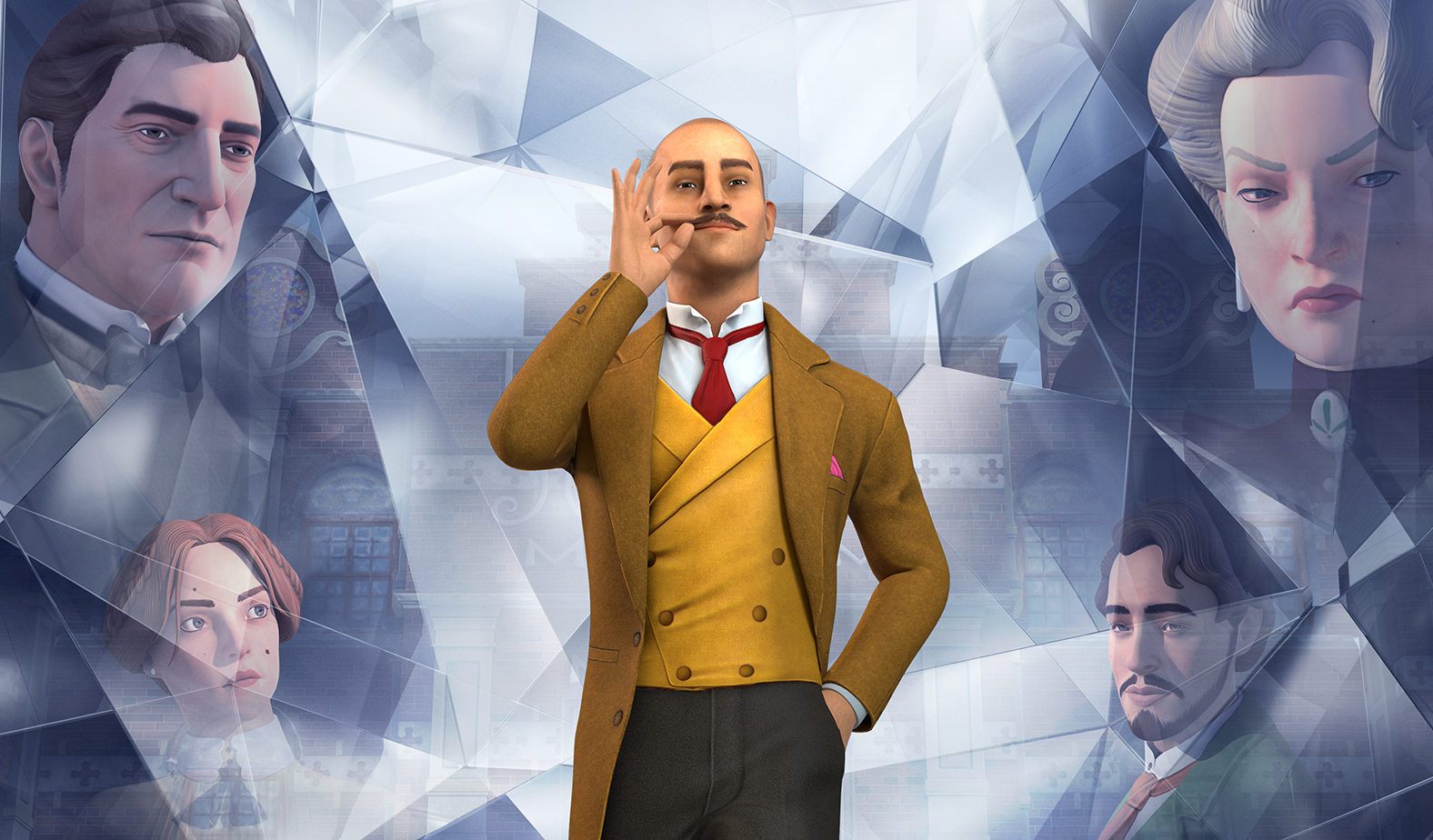Have you ever wondered what it would be like to solve a crime? Step into the shoes of Hercule Poirot, one of fiction’s most beloved detectives, as you work to solve his very first cases. Developed by Microïds and Blazing Griffin in collaboration with the Agatha Christie estate, Agatha Christie – Hercule Poirot: The First Cases is an episodic game designed to test your powers of deduction or activate your ‘little grey cells’, as you work to solve a string of mysteries.
Utilising the same functionality as Blazing Griffin’s hit game Murder Mystery Machine, The First Cases requires you, as Hercule Poirot, to gather evidence and testimonies from the characters and locations within the game, then piece everything together to solve the crime (or crimes) at hand. As you inspect your surroundings, everything is compiled into a puzzle-like mind map that grows larger and more complex with the scale of each case, and like a true detective it is your job to see through all the evidence you’ve collected and draw conclusions to solve your case.
We first come across Poirot as a young officer, relegated to a boring post in the Belgian countryside, where he is tasked by a young housemaid to investigate a burglary and find the missing bracelet of Angeline, daughter of the influential Viscount and Madame Van den Bosch. This case serves as your tutorial, guiding you through the process of gameplay. It’s a rather simplistic style, incredibly isometric in design; your location is set, with very little room to explore beyond the boundary until you have uncovered and linked enough clues, and you can’t adjust the camera angle. However, the character movement as you walk around is very fluid and this does make the game feel more modern than its format.
A key point in The First Cases is the use of the Mind Map. The other primary function besides talking in game, the Mind Map requires you to manually draw links between clues to help unravel each mystery. Through the use of colour and a chain link icon, the Mind Map provides some guidance as to how many links can be made, and which clues can’t connect. The broadening of these Mind Maps relies heavily on your own powers of deduction.
The art style of The First Cases feels like a storybook with its bright and bold palettes, and the primary actions of the game occur through dialogue boxes, much like a visual novel, displaying expressive illustrations of each character overlaid onto the screen, with the illustration occasionally changing to reflect the character’s mood or attitude. While most conversations and interrogations allow the ability to cycle through a selection of prompts, some are more challenging and only provide two options, with each one eliciting a different response that affects your progress. The game doesn’t hold wrong answers against you and more often than not, will allow you to have another crack at the conversation to get the response you need.
From a production standpoint, The First Cases is beautifully crafted and employs a voice cast that make the environment feel authentic by ensuring that the character accents are as accurate as possible. On the subject of gameplay, The First Cases’ story-driven nature means that it does lack action and this definitely won’t appeal to many mainstream gamers. The First Cases’ focus on story requires players to use an incredible amount of brain power to connect evidence, so if solving puzzles isn’t a big draw for you, then this game may not be for you. However, the sense of accomplishment you feel after successfully drawing conclusions and completing mind maps is incredibly satisfying.
Unfortunately, there are some minor technical glitches in the conversation element that sometimes sees dialogue cut short as a character speaks, as well as some instances where the voices disappear altogether, or the character’s mouths have stopped moving despite the dialogue playing out. All things considered; these are minor issues that a future patch could easily fix.
Overall, Agatha Christie – Hercule Poirot: The First Cases is a really well-made game that is a fun way to pass the time on a lazy evening. It’s challenging in a way that can frustrate as quickly as any high-octane action game can, with a similar rush of endorphins as you successfully work through each puzzle. Agatha Christie – Hercule Poirot: The First Cases is an enjoyable game if you enjoy connecting the dots and flexing your brain muscles rather than the ones in your thumbs.
Agatha Christie – Hercule Poirot: The First Cases is now available digitally on PC (Steam), Xbox One consoles, PlayStation 4 and Nintendo Switch, and will be backward compatible on PlayStation 5 and Xbox Series S/X. Physical copies on Nintendo Switch will be available at Australian retailers from October 12th.
A copy of this game was provided on PlayStation 4 for the purpose of this review.
